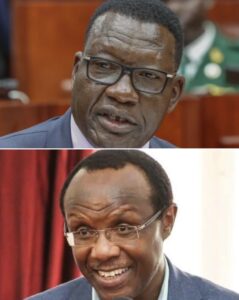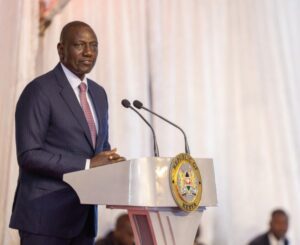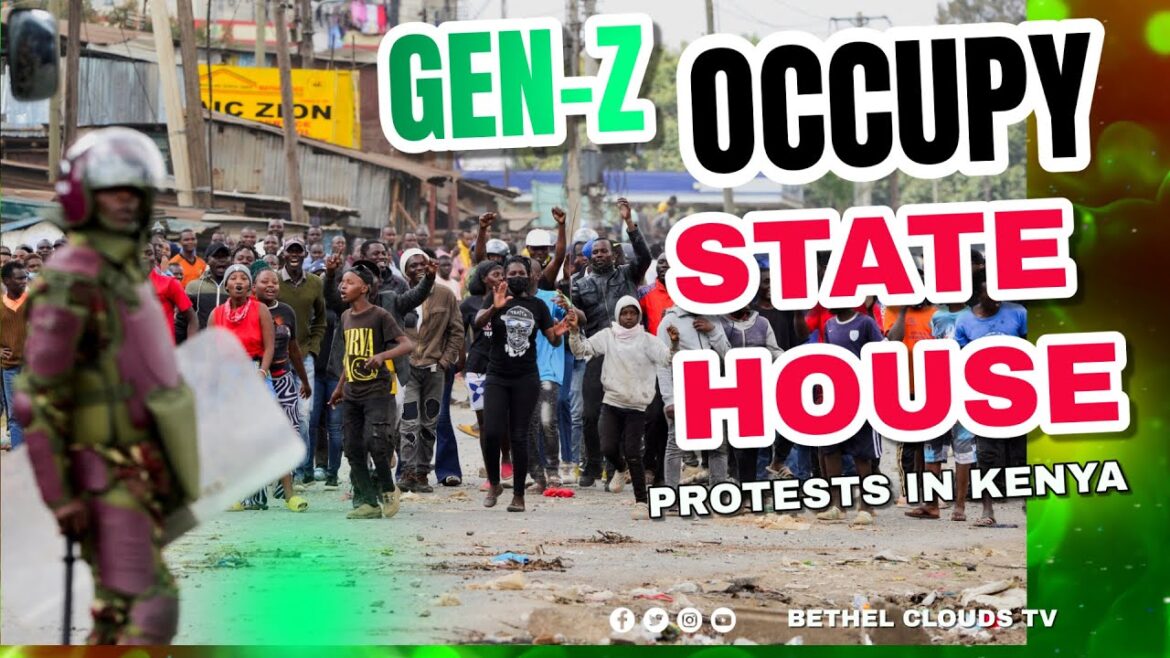Tanzania’s fuel price stands at 3,000 TZS per litre, roughly 144 KES per litre. In Kenya, fuel costs 176 KES per litre, a shocking 22% higher, despite Tanzania importing much of its fuel through Kenya’s port of Mombasa. This fuel incurs transit costs via the Kenya Pipeline Company (KPC), meaning Kenya should enjoy cheaper prices – closer to 135 KES per litre – without the added transportation burden.
Yet, the price gap exposes a deliberate scam orchestrated by the Energy and Petroleum Regulatory Authority (EPRA) and its master, President William Ruto, who personally profits from the fraudulent government-to-government (G-to-G) oil import deal. This is not a mere policy failure; it’s a calculated heist against Kenyans, and the only solution is revolution.
We must occupy State House, demand “Ruto Must Go,” and dismantle the entire corrupt system – not replace one thief with another.
EPRA’s Duplicity and Ruto’s G-gto-G Scam

The Energy Petroleum Regulatory Authority Director General Daniel Kiptoo. Facilitating theft of Kenyan by William Ruto
EPRA, under Director General Daniel Kiptoo, claims to regulate fuel prices under the Energy (Petroleum Pricing) Regulations, 2022, factoring in landed costs, storage, distribution, taxes, levies, and oil marketer margins. But the persistent price disparity with Tanzania reveals a system rigged to enrich Ruto and his cronies. The G-to-G deal, hailed as a solution to stabilize the shilling and lower fuel prices, is a blatant fraud. Unveiled in 2023, it involves state-owned Middle Eastern firms – Saudi Aramco, Emirates National Oil Corporation (ENOC), and Abu Dhabi National Oil Corporation (ADNOC) – supplying fuel on credit.
However, private firms, handpicked by Ruto, act as local distributors, inflating prices nearly double the bulk supplier rates. These firms, including Gulf Energy, Galana Oil Kenya Ltd, and Oryx Energies, operate under opaque terms, with no public disclosure of the Supplier Purchase Agreement.
The deal, far from easing costs, drove fuel prices to record highs – petrol at Sh211.64, diesel at Sh200.99, and kerosene at Sh202.61 in Nairobi – after the Finance Act 2023 doubled VAT on fuel to 16%. Ruto promised the deal would allow fuel purchases in Kenyan shillings and reduce the exchange rate to Sh120 per USD, but the shilling weakened to 140 by July 2023, and prices soared. Insiders revealed that Ruto personally benefits through proxies in these firms, siphoning profits while Kenyans suffer. The exclusion of the National Oil Corporation of Kenya (NOCK), a state entity meant to handle petroleum, from the deal further proves Ruto’s intent to funnel wealth to his network. Opposition leader Raila Odinga back when he had not been bought off like the ideological-prostitute that he is, called it “state capture,” accusing Ruto of orchestrating a corrupt scheme disguised as a government initiative.
EPRA’s Daniel Kiptoo admits Kenya’s high taxes – 16% VAT, Road Maintenance Levy, and Petroleum Development Levy – drive up costs compared to Tanzania. But this is a smokescreen. Global oil prices have plummeted to the $60s per barrel, and the shilling has stabilized at 129 KES per USD, yet pump prices remain exorbitant. Sh23.15 billion from the Petroleum Development Levy Fund (PDLF), meant to subsidize fuel, vanished without documentation, lpocketed by William Ruto and his allies. Kiptoo, a loyal servant, sets inflated pump prices while negotiating oil deals, a clear conflict of interest that serves Ruto’s personal enrichment.
A System Built on Exploitation
EPRA and Ruto’s regime prioritize insider profits over efficiency. The G-to-G deal’s fixed premiums – $90 per barrel despite falling global prices – lock Kenya into overpaying, as revealed by a leaked report in 2024. Small-scale oil marketers, squeezed out by Ruto’s favored firms, have fled to Tanzania, where pricing is fairer, costing Kenya revenue and exposing EPRA’s inefficiencies. Gulf suppliers rejected Kenya’s pleas to renegotiate terms, leaving Ruto’s government trapped in a deal that benefits his cronies while impoverishing citizens. Meanwhile, fuel demand has crashed by 30-50% due to high prices, as Kenyans abandon cars and cut back on essentials.

Thugs: Davis Chirchir and David Ndii. Architects of the G-to-G scam
Ruto’s personal stake in the scam is undeniable. Mainstream media have long linked him to dubious deals, from land grabs to questionable contracts. The G-to-G deal’s structure – bypassing NOCK and favoring private firms – mirrors his history of exploiting public resources. Ruto’s economic advisors, including David Ndii, initially praised the deal as “genius,” only for it to backfire, exposing their complicity or incompetence. Every litre of overpriced fuel lines Ruto’s pockets, while Kenyans bear the burden.
A Culture of Greed and Lies
EPRA’s public excuses – blaming global trends or exchange rates – are a cruel charade. Kiptoo and Ruto smile for cameras, promising relief, while rigging prices to fund their lavish lifestyles. Ruto’s callous 2023 remark, telling Kenyans to “dig their own oil wells,” reveals his contempt. This duplicity is psychotic: high fuel prices inflate transport, food, and commodity costs, crushing ordinary Kenyans while Ruto and his elite remain untouched. It is this public outrage over living costs that sparked protests, with Gen Z demanding “Ruto Must Go” after police brutality and government arrogance. Yet, Ruto continues to shield his G-to-G scam, protecting the profits it funnels to him and his allies.
The October 23, 2023, exposé on the G-to-G fraud aligns with these revelations, detailing how Ruto’s deal was sold as a savior but became a looting machine. Ruto’s regime thrives on such schemes, from fuel to edible oil imports, where insiders profit at public expense.
The Only Solution: Revolution

Ruto Must Go: Kenyans there is no other solution. This conniving thief must leave Statehouse IMMEDIATELY
This is not about one man or one deal – it’s a systemic rot where Ruto is the chief architect. Replacing him with another politician within this corrupt framework is futile. The solution is revolution – a complete uprooting of the system. Kenyans must occupy State House, not to install a new despot, but to tear down the structures that enable Ruto’s theft. The 2024 #RejectFinanceBill protests, led by Gen Z, showed the power of the people, storming parliament and forcing Ruto to backtrack.
These actions must escalate. We cannot negotiate with thieves who profit from our suffering.
Ruto’s G-to-G scam, personally enriching him through inflated prices and crony contracts, is a crime against Kenyans. Fuel prices remain high despite global cost drops, with taxes and levies – Sh80.50 per liter – outweighing the actual fuel cost. This is Ruto’s design: a system where every pump price hike fills his coffers. Revolution means ending this exploitation, ensuring transparency in fuel pricing, and holding Ruto accountable – not just removing him, but dismantling his empire of greed.
Call to Action
Kenyans, rise up! Occupy State House and demand “Ruto Must Go” as a battle cry for total change. Let May 2025 ignite a revolution that buries Ruto’s corrupt system and builds a Kenya where fuel prices reflect justice, not theft. No more half-measures. No more despots. Revolution now!

